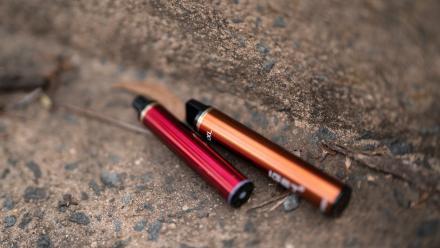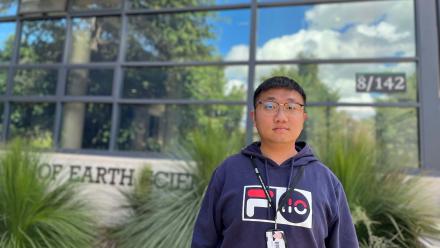Reimagining cybernetics for the future
Michelle Jasper is graduating with a Master of Applied Cybernetics. This degree is the first of its kind and the only Master program in applied cybernetics in the world. In her interview, she describes what cybernetics is and how the Master of Applied Cybernetics has shaped the way she thinks and interfaces with systems.
Why did you choose this degree?
I was drawn to cybernetics due to my passion for purposeful systems and desire to disrupt conventional innovation practices.
Explain cybernetics and the study of cybernetics for those unfamiliar with it.
Cybernetics the 'term' was coined by Norbert Wiener in 1947/8 and is based off the Greek word 'κυβερνήτης (kybernetikos)' which translates to 'good at steering'. Which is fitting, considering it is an interdisciplinary approach to inform (steer) and transform systems in a safe, responsible and sustainable way. Rather than looking at humans, technology and environments (ecology) in separate silos, cybernetics takes a much more collaborative approach peeling back the lid on circular causality or feedback and the role human, non-human and hybrid actors play in purposeful and regulatory systems. To me cybernetics is the connecting practice, the emerging branch of engineering, which bridges the gap between technical and non-technical actors within a system (or systems) to ensure emerging technologies are designed in a purposeful and meaningful way.
What did the curriculum cover?
The course covered topics ranging from managing cyber-physical systems, framing critical questions and technical topics (coding, rapid prototyping etc.). The cohort explored technology origin stories, which encouraged deep conversations about human, non-human and hybrid components of cyber-physical systems.
What was your cohort like?
An incredibly diverse cohort with diverse perspectives, that create space for many instances of productive discomfort. Distinguished Professor Genevieve Bell often refers to the term 'productive discomfort' which, from my perspective, is critical for disrupting conventional problem-solving methodologies, that shifts away from a "what's in it for me, and only me' mindset to much more inclusive one....and as research demonstrates, more diverse perspectives and more instances of productive discomfort, fosters growth and more purposeful systems!
What has been the biggest takeaway/learning from your degree?
Everything is a system, within a system. And the future design/re-design of systems requires perspective plurality to enable impactful change.
Advice for students just starting out at ANU?
Always ask the questions on your mind and engage in the discussions that challenge the status quo.
What have been some challenges that you have overcome during your degree?
Juggling work, study and family life. I've been very fortunate to have such great support networks.
What were some of the highlights of your time at ANU?
Forming meaningful friendships/support networks and being able to engage in debate in a safe space.
What are your hopes for your future?
I hope to apply my perspective as a Māori woman and cybernetic practitioner toward designing and/or redesigning more inclusive systems. In particular, I hope to investigate the emergence of environmental, social and governance (ESG) approaches and methodologies, and how by embedding First Nations perspectives they can contribute to the growth of inclusive innovation ecosystems, beyond possible future globalised iterations of colonialism.
Michelle is also the Founder and Head of the First Nations Portfolio'sGandaywarra Innovation Hub.


